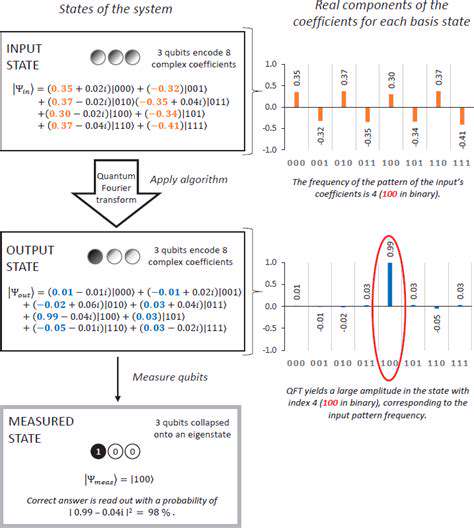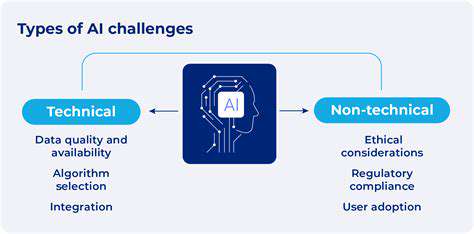
Quantum Computing Fundamentals
Quantum computing leverages the principles of quantum mechanics to perform computations. Unlike classical computers that use bits representing 0 or 1, quantum computers employ qubits, which can exist in a superposition of both 0 and 1 simultaneously. This allows for the exploration of vast possibilities in parallel, potentially leading to exponential speedups in certain computational tasks compared to classical computers.
Understanding superposition and entanglement is crucial to grasping the power of quantum computing. Superposition allows a qubit to represent multiple states simultaneously, while entanglement links multiple qubits, enabling them to share correlated states, even when separated by vast distances. This interconnectedness unlocks intricate computational possibilities.
Quantum Algorithms: A New Paradigm
Quantum algorithms are specialized procedures designed to exploit the unique properties of quantum computers. These algorithms differ significantly from classical algorithms, utilizing quantum phenomena like superposition and entanglement to tackle problems that are intractable for classical computers.
Quantum algorithms hold the potential to revolutionize various fields by solving complex problems currently beyond the reach of classical computing. They represent a paradigm shift in computational thinking, promising faster and more efficient solutions to certain problems.
Quantum Simulations: Mimicking Nature
Quantum simulations utilize quantum computers to model complex quantum systems, such as molecules and materials. This capability is invaluable for understanding and predicting the behavior of these systems, which is crucial for advancements in chemistry, materials science, and drug discovery. Simulating such complex systems on classical computers quickly becomes computationally expensive.
By emulating quantum systems, researchers can gain insights into their behavior, leading to the development of new materials and drugs. Quantum simulation promises a new era of scientific discovery.
Cryptography: Enhancing Security
Quantum cryptography explores the use of quantum mechanics to enhance security in communication. Quantum key distribution (QKD) creates unbreakable cryptographic keys, ensuring secure communication channels that are resistant to eavesdropping. This approach is based on the fundamental principles of quantum mechanics.
The security provided by quantum cryptography is unprecedented, making it a promising solution for protecting sensitive data in the face of advanced threats. By leveraging the inherent properties of quantum mechanics, QKD eliminates the vulnerability of classical cryptography to sophisticated attacks.
Financial Modeling: Predicting the Future
Quantum algorithms can potentially enhance financial modeling by enabling faster and more accurate analysis of complex financial data. This could lead to improved risk management and more precise predictions of market trends. The sheer volume and complexity of financial data make classical approaches increasingly inadequate.
Quantum computing offers the potential to process vast amounts of financial data more efficiently and accurately, leading to more informed investment decisions. The speed and precision of quantum algorithms could revolutionize financial modeling and forecasting.
Drug Discovery: Accelerating Research
Quantum computing has the potential to accelerate the drug discovery process by simulating molecular interactions and identifying potential drug candidates more effectively. By modeling molecular structures and interactions, researchers can speed up the development of new medicines. This is a tremendously time-consuming process using traditional methods.
Optimization Problems: Finding the Best Solution
Quantum algorithms excel at solving complex optimization problems, such as finding the most efficient route for transportation or the optimal configuration of resources. These problems often involve finding the best solution from a vast search space, a task that becomes computationally challenging with increasing input size. Classical computers struggle with the complexity of these problems, especially in large-scale scenarios.
Quantum algorithms aim to address the limitations of classical methods, offering the potential for faster and more efficient solutions to optimization challenges. This has significant implications in areas like logistics, supply chain management, and resource allocation.







